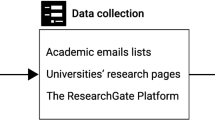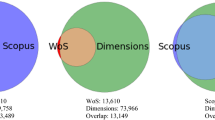Abstract
The increased use of e-learning techniques as an accepted form of teaching has resulted in a growing volume of academic research dedicated to their assessment. Despite the importance of the technique, there is little comprehensive knowledge on e-learning, especially in non-educational fields. Author co-citation analysis (ACA) is an analytical method for identifying the intellectual structure of specific knowledge domains through the relationship between two similar authors. ACA has been applied to many fields, such as information retrieval, knowledge management, and strategic management; however, it has not yet been used to analyze e-learning development. This study examines the intellectual structure of e-learning from the perspective of management information systems (MIS). By applying the ACA method, we analyze and categorize international and Taiwanese research topics into clusters. Our results show that Taiwanese authors put more effort into practical studies of business training, while international authors focus on a users’ psychological reaction to learning context. Altogether, our research provides a clear intellectual analysis of e-learning practices from 1996 to 2009, enabling us to thoroughly study and understand the influence of these techniques on modern education.










Similar content being viewed by others
References
Acedo, F. J., & Casillas, J. C. (2005). Current paradigms in the international management field: An author co-citation analysis. International Business Review, 14, 619–639.
Bandura, A. (1986). Social foundations of thought and action: A social cognitive theory. Englewood Cliffs, NJ: Prentice-Hall.
Chen, H.-J. (2005). Automatic constructing of concept map in e-Learning domain. Thesis Dissertation, National Sun Yat-sen University, Taiwan.
Chen, N.-S., & Wang, M.-H. (1997). The assisted tools of courseware production on the web. The 8th International Conference on Information Management (pp. 667–674). Taipei, Taiwan: Chinese Society of Information Management.
Chen, N.-S., Chen, H.-J., & Hsieh, S.-W. (2004). The effectiveness of web-based learning: Compare with physical and virtual environments. Proceedings of the Taiwan Academic Network Conference 2004 (TANet 2004) (pp. 107–112). Taitung, Taiwan: National Taitung University.
Chen, N.-S., Kinshuk, Wei, C.-W., & Chen, H.-J. (2008). Mining e-Learning domain concept map from academic articles. Computers and Education, 50, 1009–1021.
Clark, R. C., & Mayer, R. E. (2007). E-Learning and the science of instruction: Proven guidelines for consumers and designers of multimedia learning (2nd ed.). San Francisco, CA: Pfeiffer Publication.
Ding, Y., Chowdhury, G., & Foo, S. (1999). Mapping the intellectual structure of information retrieval studies: An author co-citation analysis, 1987–1997. Journal of Information Science, 25(1), 67–78.
Hsu, M.-J. (2007). A study on development strategy and accreditation planning of e-Learning for higher education in Taiwan. Thesis Dissertation, National Chengchi University, Taiwan.
Khan, B. H. (Ed.). (2001). A framework for web-based learning. In Web-based training (pp. 75–98). Englewood Cliffs: Educational Technology Publications.
Lim, A., Ma, H., Wen, Q., Xu, Z., & Cheang, B. (2009). Distinguishing citation quality for journal impact assessment. Communications of the ACM, 52(8), 111–116.
Ma, R., Dai, Q., Ni, C., & Li, X. (2009). An author co-citation analysis of information science in China with Chinese Google Scholar search engine, 2004–2006. Scientometrics, 81(1), 33–46.
Nerur, S., Sikora, R., Mangalaraj, G., & Balijepally, V. (2005). Assessing the relative influence of journals in a citation network. Communications of the ACM, 48(11), 71–74.
Nerur, S., Rasheed, A. A., & Natarajan, V. (2008). The intellectual structure of the strategic management field: an author co-citation analysis. Strategic Management Journal, 29, 319–336.
Rainer, R. K., Jr, & Miller, M. D. (2005). Examining differences across journal rankings. Communications of the ACM, 48(2), 91–94.
Shih, M., Feng, J., & Tsai, C.-C. (2008). Research and trends in the field of e-learning from 2001 to 2005: A content analysis of cognitive studies in selected journals. Computers and Education, 51, 955–967.
Subramani, M., Nerur, S., & Mahapatra, R. (2003). Examining the intellectual structure of knowledge management, 1999–2002—An author co-citation analysis. Working paper no. 03-23. University of Minnesota.
Tsay, M. Y., Xu, H., & Wu, C. W. (2003). An author co-citation analysis of semiconductor literature. Scientometrics, 58(3), 529–545.
White, H. D., & Griffith, B. C. (1981). Author co-citation: A literature measure of intellectual structure. Journal of the American Society for Information Science, 32(3), 163–171.
White, H. D., & Griffith, B. C. (1982). Authors as markers of intellectual space: Co-citation in studies of science, technology and society. Journal of Documentation, 38, 255–272.
White, H. D., & McCain, K. W. (1998). Visualizing a discipline: An author co-citation analysis of information science, 1972–1995. Journal of the American Society for Information Science, 49(4), 327–355.
Zhao, D., & Strotmann, A. (2011). Intellectual structure of stem cell research: A comprehensive author co-citation analysis of a highly collaborative and multidisciplinary field. Scientometrics, 87, 115–131.
Acknowledgments
This research was partially sponsored by the National Science Council (NSC), Taiwan under Grant No: NSC 96-2416-H-606-002-MY2 & 98-2410-H-606-006-MY2.`
Author information
Authors and Affiliations
Corresponding author
Appendix
Rights and permissions
About this article
Cite this article
Chen, LC., Lien, YH. Using author co-citation analysis to examine the intellectual structure of e-learning: A MIS perspective. Scientometrics 89, 867–886 (2011). https://doi.org/10.1007/s11192-011-0458-y
Received:
Published:
Issue Date:
DOI: https://doi.org/10.1007/s11192-011-0458-y




